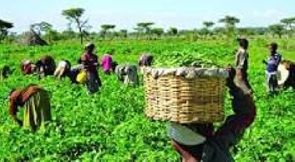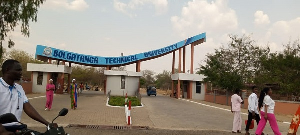About US$150 million has been earmarked by the World Bank as funding for its West Africa Food System Resilience Programme (FSRP) phase-two project in Ghana, Chad and Sierra Leone.
More than one million people are expected to benefit from the five-year project, which seeks to strengthen food systems and risk management in the sub-region and comes as a major boost for food security.
The Economic Community of West African States (ECOWAS) members share common climatic conditions and natural phenomena including diseases and disasters, droughts and floods, pests and pandemics, which disrupt food production in the sub-region. The project is therefore envisaged to build resilience against these factors.
It is for these reasons that the FSRP is being implemented in the country through the Ministry of Food and Agriculture and its directorates along with implementing partners – Ghana Irrigation Development Authority (GIDA), Council for Scientific and Industrial Research (CSIR), Ghana Meteorological Authority (GMet), WACCI and World Vegetable Centre, among others.
The assigned operational areas cover 55 districts across ten regions, with a focus on selected value chains – mainly, rice, maize, soybeans and broiler poultry.
FSRP is anchored on three themes – namely sustainability, ownership and public-private engagement.
Additionally, the FSRP is organised around three core components and aims at strengthening national capacity to provide demand-driven digital advisory services; consolidating regional agricultural innovation systems and strengthening regional food security through integrated landscape management; and expanding food trade in West Africa to enable effective distribution of surplus produce to deficit regions.
Country Director-World Bank, Pierre Laporte, in a speech read on his behalf at the West Africa FSRP Ghana launch, mentioned that the global food and nutrition crisis – triggered by high prices – is driving millions into extreme poverty, magnifying hunger and malnutrition, and threatening to erase hard-won gains in development.
He further mentioned some intended purposes the project will tend to improve.
“We all aim to ensure that the resources of this US$150million project are used in the most efficient way to reach the intended one million-plus beneficiaries, of whom 40 percent are intended to be women. It is also intended to continue expanding access to irrigation in the Kpong, Vea, Wheta and Tanoso schemes and inland valleys; increase adoption of climate smart technologies and services by nearly 250,000 farmers; bring digitised hydro and agrometeorological advisory services to at least 200,000 food systems actors; develop integrated landscape management plans and bring thousands of hectares of land under sustainable landscape management practices; and provide matching grants for agribusiness to maximise finance for development,” he said.
Coordinator for the project, Osei Owusu Agyeman, indicated that in Ghana the project will rehabilitate important equipment and infrastructure: notable among them being the CSIR; Regional Centres of Excellence; Plant Genetic Resources Research Institute (PGRRI); National Gene Bank; GLDB Seed Lab; and Veterinary Centres among others.
Furthermore, the FSRP will also foster inter-regional trade and knowledge-sharing through: ECOWAS; West and Central African Council for Agricultural Research and Development (CORAF); and the Permanent Interstate Committee for Drought Control in the Sahel (CILSS).
Launching the project on behalf of the Minister of Food and Agriculture in Kumasi, Ashanti Regional Minister Simon Osei-Mensah noted that the project – just like the Planting for Food and Jobs (PFJ) phase-two – will contribute in efforts made by government to promote food systems’ resilience in the country.
He further expressed appreciation to the World Bank for this project, and pledged his ministry and other stakeholders’ support to ensure the FSRP’s aims are achieved.
“I call on all players in the value chain – civil society, the fourth estate, political players of all sides, traditional leaders, the youth and all passionate patriots – to come and join forces with us to wrestle food system risks hands-on until they are significantly subdued. I pledge my full backing for the task ahead, as we in Ghana play our efficient part in the charge against food system risks in the West African sub-region,” the minister added.
Watch the latest edition of BizHeadlines below:
Click here to follow the GhanaWeb Business WhatsApp channel
Ghana’s leading digital news platform, GhanaWeb, in conjunction with the Korle-Bu Teaching Hospital, is embarking on an aggressive campaign which is geared towards ensuring that parliament passes comprehensive legislation to guide organ harvesting, organ donation, and organ transplantation in the country.
Business News of Monday, 11 December 2023
Source: thebftonline.com













